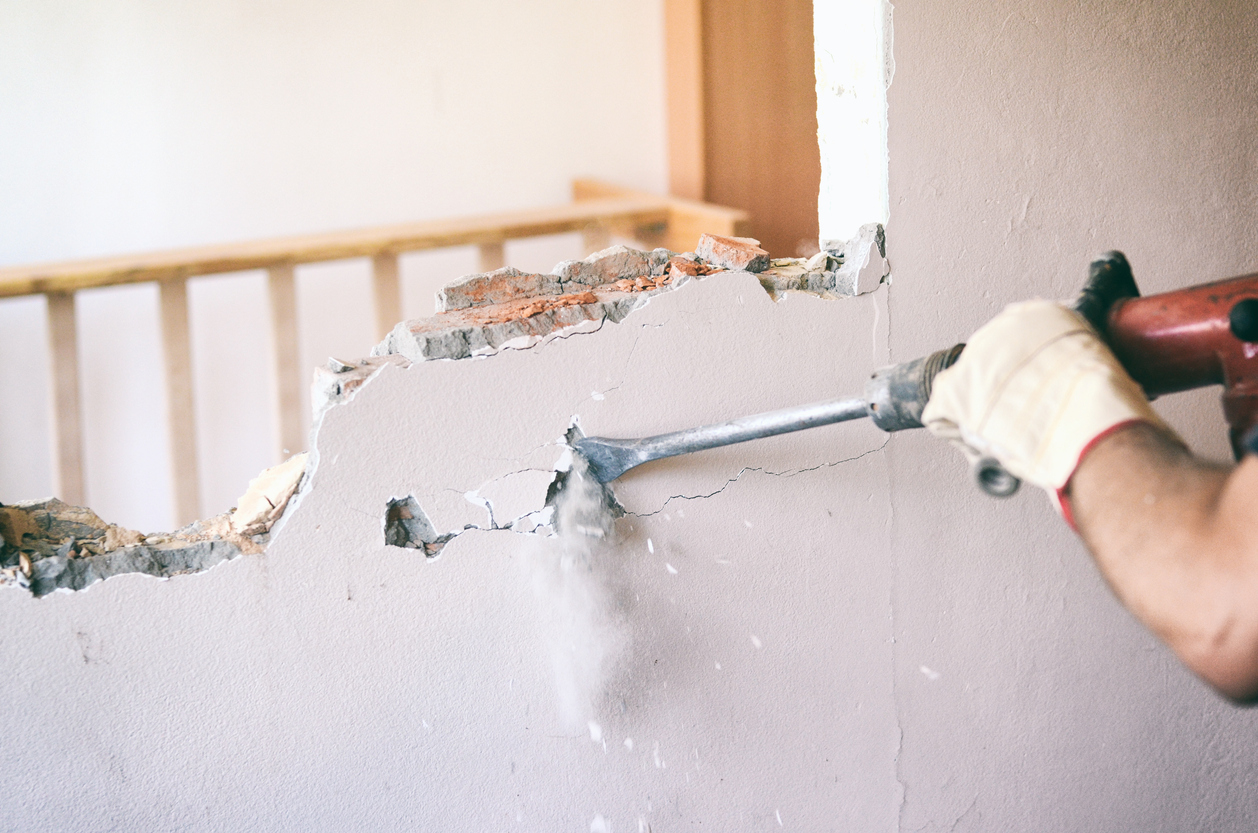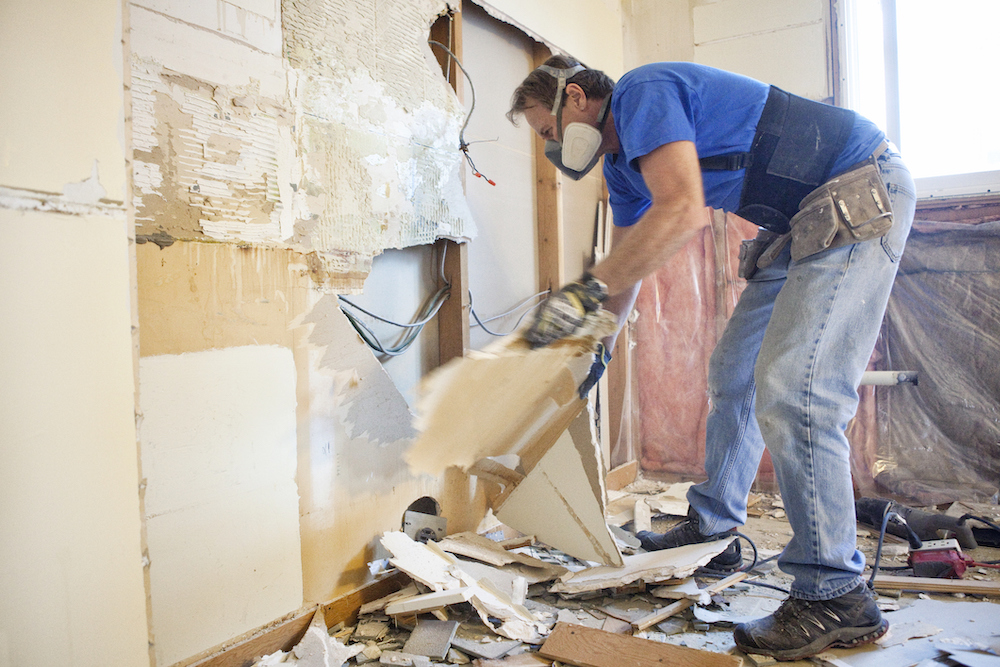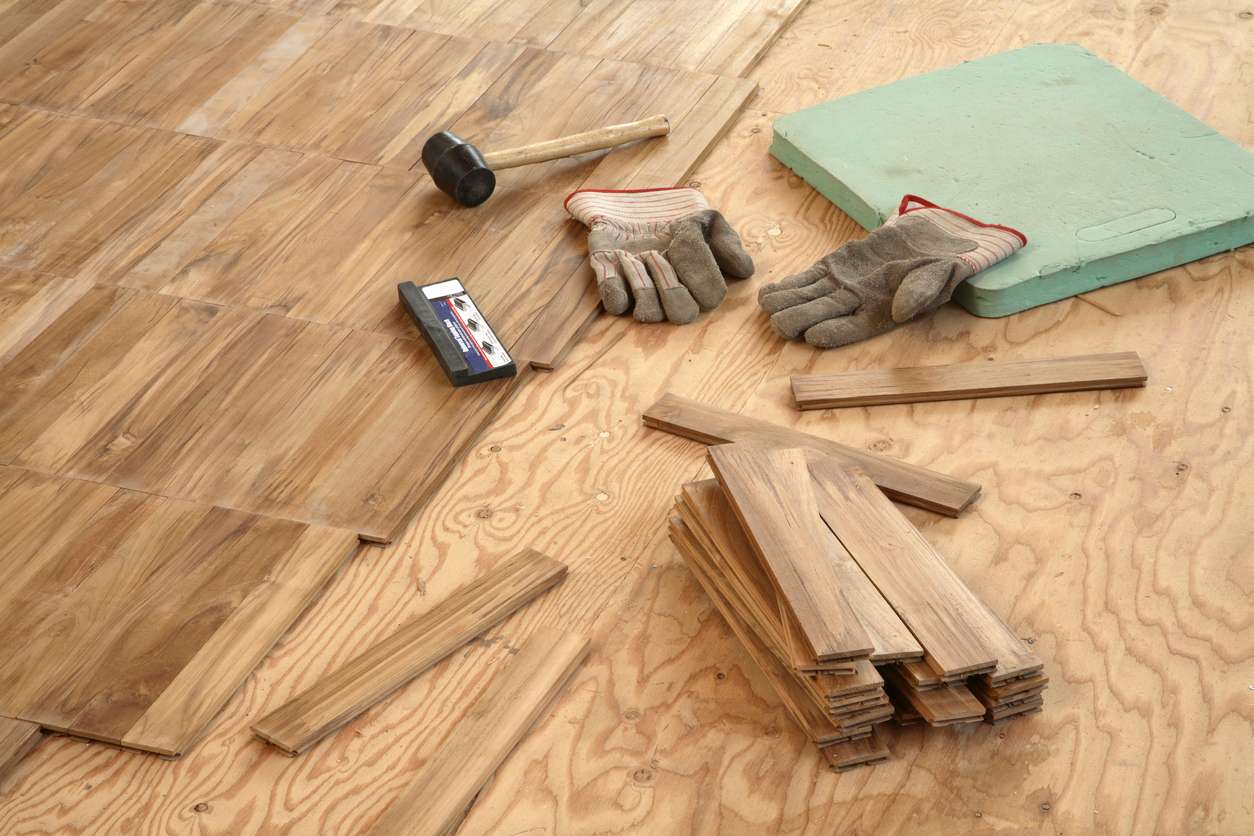

We may earn revenue from the products available on this page and participate in affiliate programs. Learn More ›
Q: We recently bought a new house, and we’re going to finish out the basement for added living space. We plan to do all the work ourselves, so do we need to pull a permit? What happens if we don’t get one?
A: Congrats on the new house! Local building codes vary from community to community, but depending on the extent and type of work you’ll be doing, you may need a permit. In general, you’ll need a permit to change load-bearing walls or install any plumbing or wiring. Some communities require permits for other types of projects as well. However, purely cosmetic projects, such as painting and carpeting, typically don’t require permits.
The second part of your question is trickier. If the authorities discover you didn’t pull a permit when you should have, you may face penalties—or worse. Depending on the rules in your community, any of the following could occur if you fail to get the necessary permits.
Related: The Most Popular Home Renovation Projects in America—And How Much They Cost
Buyers could back out of a contract to purchase your home.
When you pull a permit, the local building authority examines the plans and often inspects the project to ensure it’s up to code. The project is then recorded and tied to your home’s deed at the local Register of Deeds Office. When you go to sell the house, the deed is examined, and if the information listed is different from the actual property, a potential buyer can usually back out of the deal.
Homeowners facing this situation may be able to obtain a “retroactive” permit by contacting the building authority and explaining what happened. The work may need to be inspected by experts to obtain the permit. At any rate, the best course of action is to disclose the issue to your real estate agent so potential buyers know up front what to expect.

In a worst-case scenario, you may have to tear out all the updates.
In some communities, the permitting rules are so strict that homeowners may have to tear out their work when an unpermitted remodeling project is discovered. This extreme penalty usually pertains when homeowners do their own electrical, structural, or plumbing work. The degree of caution is understandable: Building authorities exist to control the safety and quality of construction practices, and the way they do that is by requiring permits and enforcing codes.
Because hiring professionals to complete a remodeling project can be cost prohibitive, it’s easy to understand why some homeowners are tempted to bypass the permit process. There are, however, money-saving work-arounds. For instance, if you’re knowledgeable about framing, plumbing, or electrical work, it may be possible to hire a licensed professional as a consultant, do the work yourself, and then have the expert sign off on the quality of the work. A permit will still be necessary, however, and the professional will have to approve the plans.
Homeowners insurance may not cover damages caused by unpermitted work.
Home insurers bank on the fact that the property they’re insuring is sound, both structurally and mechanically. If a homeowner connects a gas line or runs new electrical wiring and then the house burns down, the insurer may not pay for the loss if it’s determined that the fire originated in the wiring or was due to a leaky gas line.
In addition, if the insurer gets wind of the unpermitted project, the homeowners insurance agency could cancel the coverage. Getting new coverage could be challenging because insurers often share information with one another.
You could face steep penalties.
Most homeowners who bypass the permitting process do so in order to save a few bucks. Depending on the community and the project itself, permits start at around $100 and run as high as $600 or more. Getting caught could earn you a fine of over $1,000, so it’s usually best to just get the permit from the start so you don’t have to worry about it later.
You could also face public shaming: Some communities publish the names of those who do work without permits, which adds a little more incentive to follow the letter of the law.

You may be liable for damages even after you sell the house.
Even after you sell your home and move on, you could still be liable if your previous home suffers damage due to unpermitted work you did. If a fire starts in the wiring you ran, or if the house shifts because you removed a load-bearing wall, the current owner may be able to file a suit against you and collect for the damages.
In short, although it may be tempting to skip the permit process, it’s rarely a good idea. Permits help maintain consistent and safe building practices, so contact the local building authority before you get started. The permit may not cost as much as you think, and you won’t have to worry about getting caught later.

